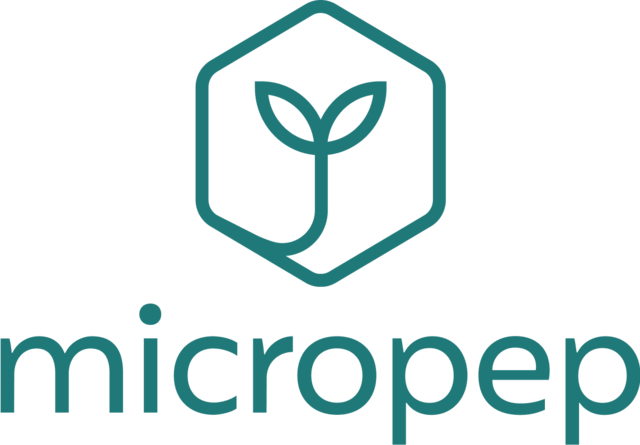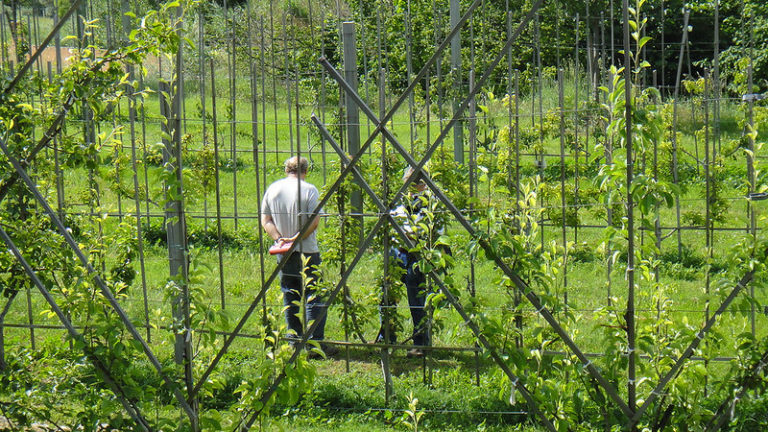Actualités
Germany: no government support for GMO deregulation

In 2023, the governments of the European Union member states will have to vote on the European Commission’s legislative proposal on new GMOs, which will be published in late spring. In a voting system where the weight of a state depends on the percentage of the population it represents, the position of the German government could prove decisive in the outcome of the vote. Since the change of government in December 2021, this position is not clearly decided…
A little more than thirty years after the first legislation on GMOs, the European Commission is planning to publish a legislative proposal on June 7, 2023, which could radically change the definition and legislative framework of GMOs in the EU. The proposal could lead to the complete exclusion of many GMOs from regulation [1]. Climate change, droughts and loss of biodiversity are some of the reasons put forward to justify the reform of the current policy framework, which is based on the precautionary principle and which ensures traceability and transparency for consumers.
At the various meetings of EU Environment and Agriculture Ministers held in recent months, it has become apparent that a majority of Member States support the development and use of new genetic modification techniques. Many have also stressed the need to maintain the precautionary principle and to provide adequate information to the public. Germany’s position on the issue has changed since the parliamentary elections in December 2021. Its vote could prove decisive in the outcome of the Member States’ vote on the European Commission’s proposal.
When the federal government supported the European Commission
In May 2021, at the meeting of the Agriculture ministers of the EU member states, Germany took an unambiguous position: while bearing in mind the precautionary principle, the regulatory framework for GMOs must be adapted in order to take advantage of the new techniques of genetic modification, which are to be considered as part of green technologies and which will make it possible to have “climate-resilient” plants [2].
This position reflected that of the majority party in power at the time: Angela Merkel’s CDU. The then Federal Minister of Agriculture, Julia Klöckner, called for “getting rid of ideological blinders” and “being open-minded” about “new breeding technologies that save us an incredible amount of time and which, moreover, are completely indistinguishable from spontaneous random mutations”. In an article published in the Tagesspiegel newspaper, she stated that “(f)or me, the precautionary principle is a valuable asset. However, we must also take into account the current state of science when applying it. Many scientists advocate a differentiated view of new breeding techniques. For the risk assessment of a modified plant, it is not the tool used that is important, but the specific properties worked on – in other words, the product, not the process” [3].
At the time, the European Commission seemed to be able to count on Germany’s strong influence to push forward its legislative proposal. But this is not the case anymore since the parliamentary elections in December 2021 following which a coalition government of the Social Democrats (SPD), the Greens (Bündnis 90 / Die Grünen) and the Liberals (FDP) was formed.
Government majority against deregulation of new technologies
The three parties are divided on the issue of GMOs and how to regulate those resulting from new genetic modification techniques. A telling sign is that the coalition agreement does not explicitly mention GMOs and new genetic modification techniques. Nevertheless, the coalition partners commit themselves to “support the breeding of climate-resistant plant varieties” and “to create transparency in breeding methods and and strengthen risk and detection research” [4].
In the coalition government, new genetic modification techniques are viewed with skepticism in the Ministry of Agriculture and the Ministry of the Environment, both led by the Greens. The Minister of the Environment, Steffi Lemke, takes the strongest position. At a conference in Brussels in June 2022, the Minister stated that she “does not see the need for new regulation [editor’s note: for GMOs from new genetic modification techniques]” [5]. For the Minister, the Court of Justice of the European Union was very clear in its 2018 ruling: GMOs from new techniques fall under the GMO regulation and their risks for human health and the environment must assessed before being authorised for any use. More recently, on January 17, at the Agricultural Congress organized by the Ministry of the Environment, which was held together with Federal Minister of Agriculture Cem Özdemir and the Executive Secretary of the UN Convention on Biological Diversity, Elisabeth Mrema, the Minister stated that “the efforts of the European Commission to remove the risk assessment for plants produced using new genetic techniques do not put us on the right path. If we work with this technology, the precautionary principle and risk assessment must be maintained” [6]. According to the Minister, genetic modification techniques, whether they be old or new, support the industrial agricultural model from which we must move away.
The Ministry of Agriculture is also opposed to the deregulation of new GMOs. A spokeswoman for the Ministry of Agriculture, interviewed by Infodienst Gentechnik, states that the approval procedure for GMOs from new genetic modification techniques must remain as strict as for other GMOs [7]. The Ministry wants “the safety level and transparency to remain unchanged in the future. This means, in particular, that we will adhere to an autorisation process with a case-by-case risk assessment, a strict labeling requirement and traceability”, the spokesperson told Infodienst. She added: “(i)t must be ensured that the freedom of choice of consumers, farmers and the food industry, and thus coexistence, remains guaranteed”. Silvia Bender, State Secretary in the Ministry of Agriculture [8], said that “deregulation [of GMOs from new genetic modification techniques] at the European level would run counter to consumer desires [of transparency and freedom of choice of food, referring to different opinion polls] and I believe we should not do that” [9].
A coalition still searching for a common position
This position is important as the Ministry of Agriculture is the lead ministry for new genetic modification techniques in Germany. It is responsible for reaching a compromise within the federal government ahead of the vote on the Commission’s proposal in the Council of Ministers of the European Union.
The Social Democrats of the SPD, who have been entrusted with the chancellery and who have a majority in the Bundestag (lower house of parliament), stand alongside the Greens. As reported by Inf’OGM at the end of 2022, the Social Democrats defend a strict regulatory framework [10]. Indeed, the SPD believes that GMO regulation should apply to all GMOs without exception, including those from new genetic modification techniques, in line with the 2018 CJEU ruling [11]. In 2019, the party already declared that it “does not want the cultivation of genetically modified plants in Europe. For us, the precautionary principle applies, especially to new methods of genetic modification like CRISP/Cas. We reject any weakening of European regulations in this regard” [12]. Recently, during question time with the Government, the Minister of Development, Svenja Schulze (SPD), said that “there are no genetically modified crops that really fight hunger in the world” [13].
The Greens and Social Democrats’ position is in line with the arguments of major european food retailers, ranging from discount to organic. In a letter to the European Commission, they asked for new genetic modification techniques to be subject to the same rules as other GMOs [14].
Within the coalition, the FDP (Liberals), who are in charge of the Ministry of Research, are the exception and are calling for a relaxation of the rules. Research Minister Bettina Stark-Watzinger says that her party will work within the government for a revision of the European regulation on GMOs “adapted to the risks and the state of science”. In an interview with the Tagesspiegel, she said that “the so-called New Breeding Techniques offer many advantages, opportunities and potentials. If we are to meet challenges such as climate change, food security and sustainable agriculture, we must rely on these advanced technologies” [15].
Uncertainty on future discussions
The European Commission’s proposal not having been published yet, it is difficult to predict the possible majority in the Council. But the Member States will have to vote on the European Commission’s proposal by qualified majority. And, according to this voting system, a proposal must, in order to be adopted, recieve the favourable votes of 55% of the Member States, representing at least 65% of the EU population. Germany alone represents 18.59% of the EU population, which is the largest demographic weight of the 27 Member States.
Although a number of Member States have called for a relaxation of the rules for new GMOs (notably France, Spain and Italy, three countries that together represent 39.08% of the European population), the lack of unanimity within the German government coalition adds to the uncertainty regarding the outcome of future discussions on the European Commission’s legislative proposal.
[1] ,
, « Objectif 2030 : déréglementer la plupart des OGM en Europe ? », Inf’OGM, 16 August 2022.
[2] , « Dérèglementation des OGM : la France « soutient pleinement » la Commission européenne », Inf’OGM, 23 June 2021.
[3] CDU-CSU, « Julia Klöckner : Natürlich ist CRISPR/Cas oder ist Grüne Gentechnik kein Allheilmittel », 19 November 2020.
[4] « Mehr Fortschritt wagen, Koalitionsvertrag 2021 – 2025 zwischen der Sozialdemokratischen Partei Deutschlands (SPD), BÜNDNIS 90 / DIE GRÜNEN und den Freien Demokraten (FDP) », 7 December 2021.
[5] Bundesministerium für Umwelt, Naturschutz, nukleare Sicherheit und Verbraucherschutz, « Rede von Steffi Lemke in Brüssel zu “GMO Regulation für plants derived from new genomic techniques : Environmental and consumer protection aspects” », 13 June 2022.
[6] Bundesministerium für Umwelt, Naturschutz, nukleare Sicherheit und Verbraucherschutz, « Rede von Bundesumweltministerin Steffi Lemke auf dem BMUV Agrarkongress 2023 », 17 January 2023.
[7] Informationsdienst Gentechnik, « Neue Gentechnik : 420.000 fordern strenge Regeln », 2 December 2022.
[8] Agricultural engineer by training. She has worked in the organic sector and in environmental organizations. She is also a member of the Green Party.
[9] Informationsdienst Gentechnik, « Agrarstaatssekretärin : Regeln für neue Gentechnik nicht aufweichen », 8 April 2022.
[10] , « OGM : la majorité au Parlement allemand veut maintenir le droit », Inf’OGM, 16 December 2022.
[11] , « Europe – Les nouveaux OGM sont des OGM comme les autres », Inf’OGM, 25 July 2018.
[12] Sozialdemokratische Partei Deutschlands, « Arbeitsgemeinschaft bäuerliche Landwirtschaft (AbL) e.V. und weitere Spitzenverbände aus Landwirtschaft, Umwelt und Gesellschaft », 17 April 2019.
[13] Finanz Nachrichten, « Entwicklungsministerin : Keine Gentechnik gegen Hunger », https://www.finanznachrichten.de/nachrichten-2023-01/58089086-entwicklungsministerin-keine-gentechnik-gegen-hunger-016.htm, 18 January 2023.
[14] , « OGM non transgéniques – L’industrie allemande sans OGM veut le rester », Inf’OGM, 16 December 2021.
[15] Höhne, V., « Forschungsministerin zu Genschere : Stark-Watzinger will Erbgut-Technik neu regulieren », Tagesspiegel, 18 December 2022.















